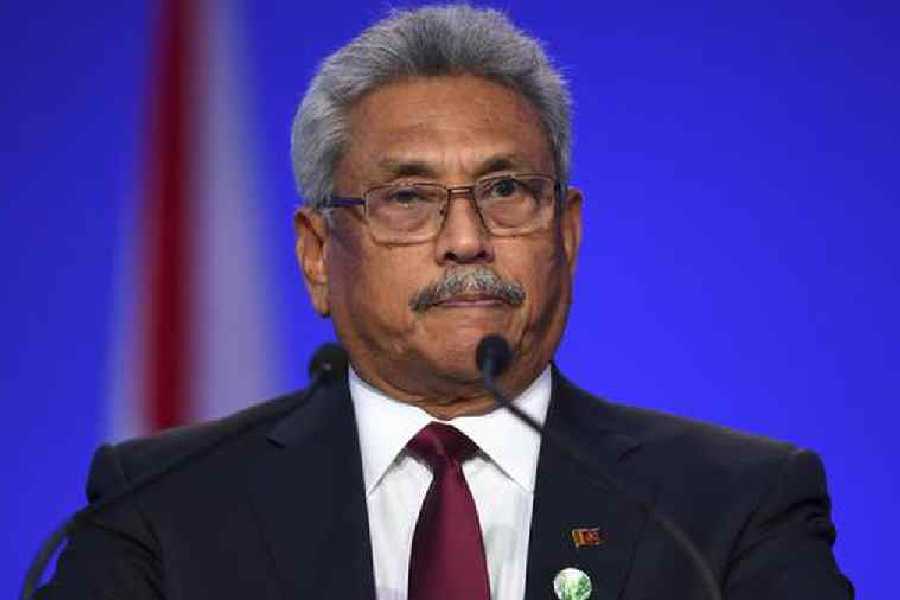Gotabaya Rajapaksa, ousted as the president of Sri Lanka in a popular public uprising in 2022, on Thursday hinted that India was keen on his continuation despite the growing public discontent against him at the behest of certain Western powers.
“There was, in fact, a major foreign power that was insisting that I should not resign and they had demonstrated their willingness to do whatever it takes to keep Sri Lanka with essentials,” Rajapaksa, 74, writes in his book without naming India.
Titled ‘The Conspiracy to oust me from the Presidency,’ Rajapaksa’s book was out for sale starting Thursday but there was no official book launch.
Gotabaya Rajapaksa’s resignation and fleeing away from the country to the Maldives in mid-July 2022 came after India had extended a credit line with assistance worth USD 4 billion when Sri Lanka's economy went bankrupt with long queues for essentials and fuel for four months preceding this development. His book does have a reference to this critical aid received from India.
“Yet I resigned from the presidency to give the people of Sri Lanka some respite,” the former president says in the book, adding that after two years of Covid lockdowns, closure of schools and loss of employment, the cost of living increases. “I did not want to put the people through a protracted political stand-off on my account." “... I resigned in order to put an end to the political conspiracies and sabotage that was making life intolerable for everyone,” he said, adding, “It would be extremely naive for anyone to claim that there was no foreign hand in the moves made to oust me from power.” “Determined foreign powers and certain local parties were financing and organising violent protests and sabotage for my removal and they would not have stopped so long as I had remained in power. Thus the people would have had to endure more sabotage, more shortages, more riots and demonstrations and normalcy would not have been restored,” the former president writes.
He did not name any country but sentences such as “Some countries like to portray themselves as the guardians of democracy and the rule of the law world over” do make it obvious to which Western nation he is pointing fingers at.
“In fact, the biggest damage to democracy in any developing nation comes not from global powers that are said to have authoritarian forms of government but from certain wealthy developed democracies and their paid fifth columnists,” he says.
There is also another reference where he says, “The acts of sabotage, destabilisation and violent mass protests organised and funded by certain developed nations in order to achieve their political objectives have been well documented” and goes on to mention examples since 2005 from Sri Lanka where foreign interventions prevailed and where Sri Lankan people prevailed.
Rajapaksa, who was the commander-in-chief of forces as the president, blames the personality clashes within the defence establishment for the intelligence breakdown, which had resulted in an incorrect assessment of the looming threat.
By naming individuals, he laments that differences among them had “contributed to not making accurate assessment” of the build-up that was gaining momentum via social media for his ouster.
He underlines that for the future, “strict protocols must be enforced to regulate, monitor and limit the interactions senior officers of the armed services police and the intelligence services have with the staff of foreign embassies. Visits by foreign ambassadors to military installations should also be stopped.” A statement from Rajapaksa on Wednesday said “The foreign intervention and the manipulation of internal politics has become a fact of life in Sri Lanka in a manner never experienced in the first 60 years of independence of this country. The political campaign to oust him brought in a new element into the politics of Sri Lanka, which has since independence, experienced only peaceful transfers of power following elections.”
Except for the headline, this story has not been edited by The Telegraph Online staff and has been published from a syndicated feed.











